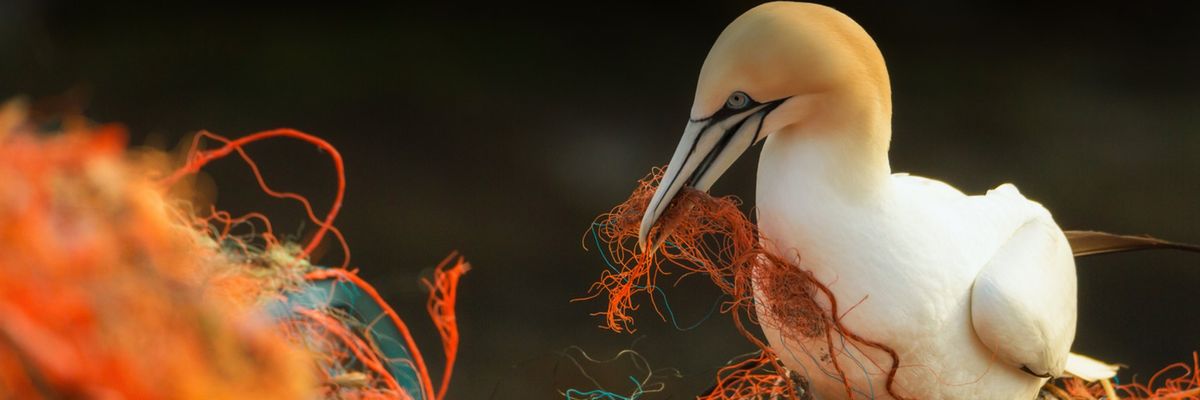A newly discovered disease is sickening seabirds, and it's not caused by a virus or bacteria—it's caused by ingesting the increasingly ubiquitous bits of plastics contaminating land, air, and sea.
That's the conclusion of a recently published study in the Journal of Hazardous Materials, with researchers calling the "novel, plastic-induced fibrotic disease" plasticosis.
According to the paper's abstract:
Highly impacted by plastic ingestion, flesh-footed shearwaters (Ardenna carneipes) are thus an apt species to examine these impacts in an environmentally relevant manner. A Masson's Trichrome stain was used to document any evidence of plastic-induced fibrosis, using collagen as a marker for scar tissue formation in the proventriculus (stomach) of 30 flesh-footed shearwater fledglings from Lord Howe Island, Australia. Plastic presence was highly associated with widespread scar tissue formation and extensive changes to, and even loss of, tissue structure within the mucosa and submucosa. Additionally, despite naturally occurring indigestible items, such as pumice, also being found in the gastrointestinal tract, this did not cause similar scarring. This highlights the unique pathological properties of plastics and raises concerns for other species impacted by plastic ingestion.
"While these birds can look healthy on the outside, they're not doing well on the inside," study co-author Alex Bond, who is the senior curator in charge of birds at the U.K.'s Natural History Museum in London, told The Guardian. "This study is the first time that stomach tissue has been investigated in this way and shows that plastic consumption can cause serious damage to these birds' digestive system."
Previous studies have found that around 90% of all seabirds have ingested plastics. Marine conservationists argue that reduced plastics consumption and targeted efforts to keep plastics out of the Earth's oceans are the most effective means of curbing the crisis.
